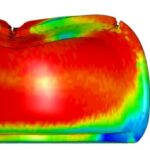Hanwha Group is considering bidding for a 100 percent stake in U.S.-based automotive materials supplier. According to investment banking industry sources on June 6, Hanwha Group has submitted a non-binding letter of intent to buy Continental Structural Plastics (CSP). CSP manufactures lightweight composite materials and car panels, and provides them to leading American automakers such as General Motors Co., Ford Motor Co. and FCA US LLC – the North American unit of Fiat Chrysler Automobiles N.V. Its sales reached US$550 million (636.79 billion won) last year, and it runs 15 branches in four countries such as the U.S., China, France and Mexico. Hanwha seeks to buy an entire stake in CSP, a deal which is estimated at around US$600 million (694.68 billion won). The industry observes that Hanwha Group makes an eligible candidate as it has ample cash reserves of 800 billion won (US$690.97 million) after it recently shed non-core businesses. CSP is expected to select a preferred bidder in August after it completes receiving offers from bidders and conducting due diligence. The world’s largest chemical producer BASF SE, headquartered in Germany, and Japanese Mitsubishi Group, also purportedly have a keen interest in buying CSP. CSP currently produces 85,000 tons of auto parts and lightweight composite materials, such as advanced composite materials and carbon fibers, annually. The figure is the largest in North America. If successful, CSP will be the second automotive materials manufacturer acquired by Hanwha Group. The Group took over German auto parts company Heycoustics, which produces plastic floor coverings, last year.











